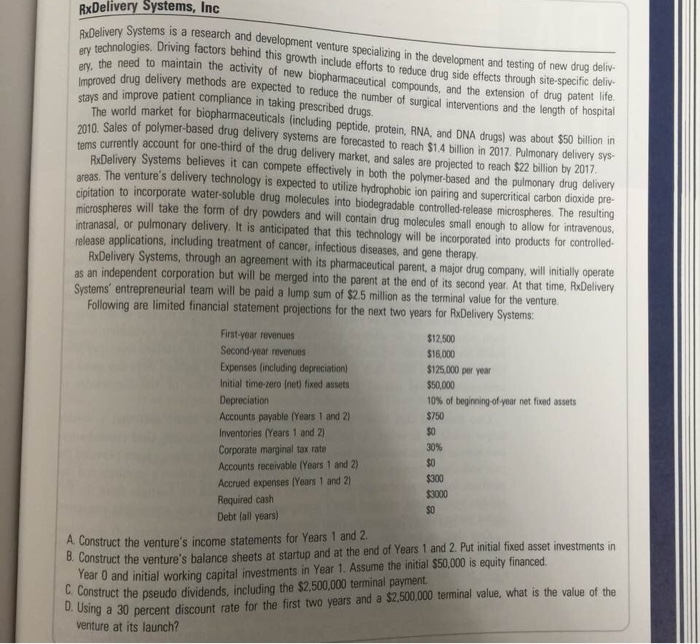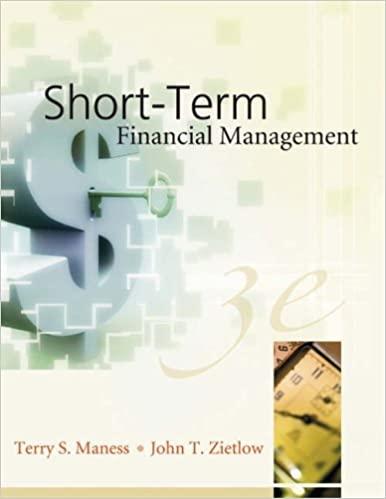RxDelivery Systems is a research and development venture specializing in the development and testing of new drug delivery technologies. Driving factors behind this growth include efforts to reduce drug side effects through site-specific delivery, the need to maintain the activity of new biopharmaceutical compounds, and the extension of drug patent life. Improved drug delivery methods are expected to reduce the number of surgical interventions and the length of hospital stays and improve patient compliance in taking prescribed drugs. The world market for biopharmaceuticals (including peptide, protein, RNA, and DNA drugs) was about $50 billion in 2010. Sales of polymer-based drug delivery systems are forecasted to reach $1.4 billion in 2017. Pulmonary delivery systems currently account for one-third of the drug delivery market, and sales are projected to reach $22 billion by 2017. RxDelivery Systems believes it can compete effectively in both are polymer-based and the pulmonary drug delivery capitation to incorporate water-soluble drug molecules into biodegradable controlled-release microspheres. The resulting microspheres will take the form of dry powers and will contain drug molecules small enough allow for intravenous, intranasal, or pulmonary delivery. It is anticipated that this technology will be incorporated into products for controlled-release applications, including treatment of cancer, infectious diseases, and gene therapy. RxDelivery Systems, through an agreement with its pharmaceutical parent, a major drug company, will initially operate as an independent corporation but will be merged into the parent at the end of its second year. At that time, RxDelivery Systems' entrepreneurial team will be paid a lump sum of $2.5 million as the terminal value for the venture. Following are limited financial statement projections for the next two years for RxDelivery Systems: First-year revenues $12,500 Second-year revenues $16,000 Expenses (including depreciation) $125,000 per year Initial time-zero (net) fixed assets $50,000 Depreciation 10% of beginning of year net fixed assets Accounts payable (years 1 and 2) $750 Inventories (year 1 and 2) $0 Corporate marginal tax rate 30% Accounts receivable (years 1 and 2) $0 Accrued expenses (year 1 and 2) $300 Required cash $3000 Debt (all years) $0 Construct the venture's income statements for years 1 and 2. Construct the venture's balance sheets at startup and the end of years 1 and 2. Put initial fixed asset investments in year 0 and initial working capital investments in year 1. Assume the initial $50,000 is equity financed. Construct the pseudo dividends, including the $2,500,000 terminal payment. Using a 30 percent discount rate for the first two years and a $2,500,000 terminal value, what is the value of the venture at its launch? RxDelivery Systems is a research and development venture specializing in the development and testing of new drug delivery technologies. Driving factors behind this growth include efforts to reduce drug side effects through site-specific delivery, the need to maintain the activity of new biopharmaceutical compounds, and the extension of drug patent life. Improved drug delivery methods are expected to reduce the number of surgical interventions and the length of hospital stays and improve patient compliance in taking prescribed drugs. The world market for biopharmaceuticals (including peptide, protein, RNA, and DNA drugs) was about $50 billion in 2010. Sales of polymer-based drug delivery systems are forecasted to reach $1.4 billion in 2017. Pulmonary delivery systems currently account for one-third of the drug delivery market, and sales are projected to reach $22 billion by 2017. RxDelivery Systems believes it can compete effectively in both are polymer-based and the pulmonary drug delivery capitation to incorporate water-soluble drug molecules into biodegradable controlled-release microspheres. The resulting microspheres will take the form of dry powers and will contain drug molecules small enough allow for intravenous, intranasal, or pulmonary delivery. It is anticipated that this technology will be incorporated into products for controlled-release applications, including treatment of cancer, infectious diseases, and gene therapy. RxDelivery Systems, through an agreement with its pharmaceutical parent, a major drug company, will initially operate as an independent corporation but will be merged into the parent at the end of its second year. At that time, RxDelivery Systems' entrepreneurial team will be paid a lump sum of $2.5 million as the terminal value for the venture. Following are limited financial statement projections for the next two years for RxDelivery Systems: First-year revenues $12,500 Second-year revenues $16,000 Expenses (including depreciation) $125,000 per year Initial time-zero (net) fixed assets $50,000 Depreciation 10% of beginning of year net fixed assets Accounts payable (years 1 and 2) $750 Inventories (year 1 and 2) $0 Corporate marginal tax rate 30% Accounts receivable (years 1 and 2) $0 Accrued expenses (year 1 and 2) $300 Required cash $3000 Debt (all years) $0 Construct the venture's income statements for years 1 and 2. Construct the venture's balance sheets at startup and the end of years 1 and 2. Put initial fixed asset investments in year 0 and initial working capital investments in year 1. Assume the initial $50,000 is equity financed. Construct the pseudo dividends, including the $2,500,000 terminal payment. Using a 30 percent discount rate for the first two years and a $2,500,000 terminal value, what is the value of the venture at its launch







